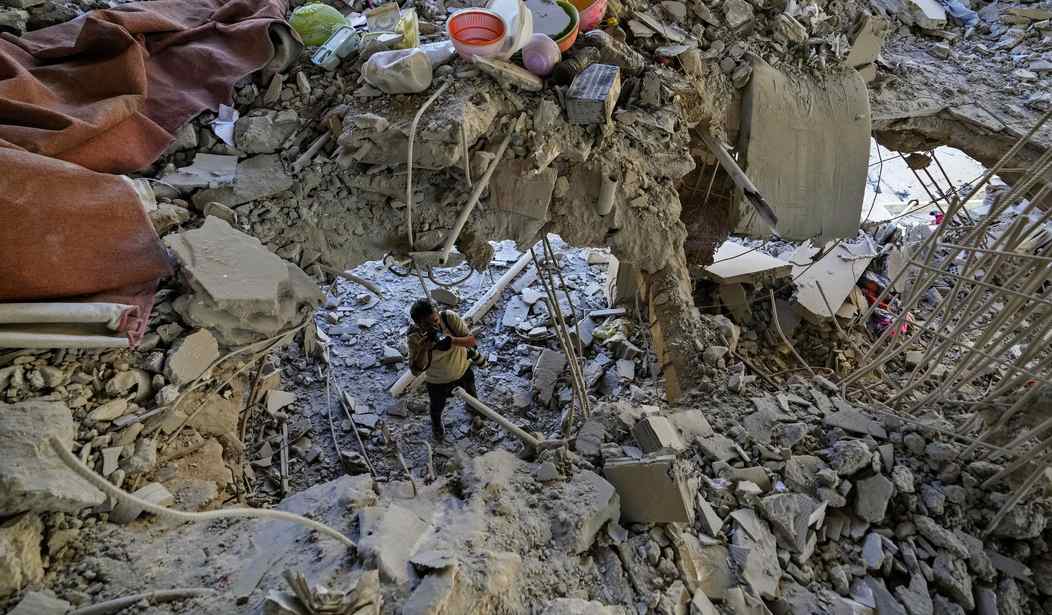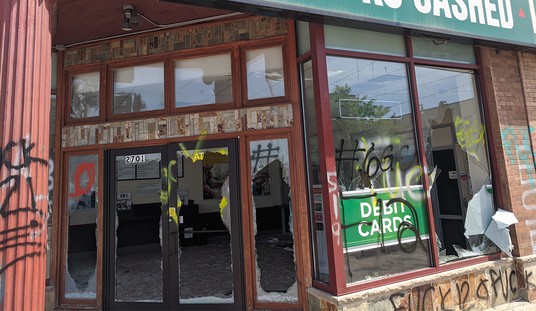For the first time in five years, Ayatollah Ali Khamenei, Iran's Supreme Leader, gave the Friday sermon at the Imam Khomeini Grand Mosalla mosque in Tehran. In front of tens of thousands of worshippers, Khamenei justified the October 7 attack on Israel where 1,200 people were massacred, calling it "logical and legal."
"The Al-Aqsa Flood attacks that took place around this time last year were a logical and legal international move and the Palestinians were right," AFP reports Khamenei saying during his sermon. Khamenei added that “no one has the right to criticize them.”
Khamenei lovingly fondled a rifle he had by his side, claiming that the 185 missile salvo Iran launched on Tuesday was based on international law, Iranian law, and Islamic beliefs. “What our armed forces did was the minimum punishment for the crimes of the usurping Zionist regime,” said Khamenei of the missile fire.
Israel was a “malicious regime” that has “only kept itself standing by the injection of American support.”
It “will not last long,” he said.
Also on Friday, the Revolutionary Guards Deputy Commander Ali Fadavi warned that if Israel retaliated for the missile barrage, then Iran would target Israel's energy industry.
“If the occupiers make such a mistake, we will target all their energy sources, installations, and all refineries and gas fields,” Fadavi said.
Will they or won't they? Will Israel attempt to take out Iran's hardened nuclear infrastructure? Bloomberg's Mark Champion doesn't see how any of the factors that caused Israel to hesitate prior to October 7 have changed.
What hasn’t changed in recent weeks is that Iran spent the last decade hardening its nuclear program against attack, with the most valuable equipment literally buried under mountains. Eliminating the program is likely impossible, while to try and fail is almost guaranteed to trigger an Iranian dash for the bomb. Any serious attempt, moreover, would require a massive attack of the kind that can only be carried out with US participation.
A further constraining factor is that ordinary Iranians are potentially Israel’s best allies in its goal of unseating Khamenei’s regime, because they despise it. Netanyahu knows this. In a recent broadcast, he appealed to the Iranian people directly. Any attack that causes collateral damage to civilians — in particular radioactive fallout from any strike on enriched uranium stores — would risk provoking a rally-around-the-flag effect that, for Israel, would be self-defeating.
Champion believes it would be very bad if Israel tried to take out the labs and production facilities involved in Iran's nuclear program and failed. It would force Iran to throw off all pretense of pursuing peaceful nuclear power development and race to complete a bomb. This "use it or lose it" philosophy would jack up tensions between Iran and Israel to hair-trigger levels.
Israel will likely focus on non-nuclear targets; this time, perhaps Iran’s air defenses and missile launchers, or its energy structure. Whether that will achieve much more than a further round of escalatory strikes is unclear. Yet the die seems cast. Israel will retaliate to this week’s missile attack, and Tehran will likely follow through on its threats to respond. An Iranian nuclear breakout, and an Israeli strike to prevent it, have drawn closer.
Another takeaway from the last 48 hours is the total irrelevancy of Joe Biden in this crisis. Israeli Prime Minister Benjamin Netanyahu has decided to freeze out the U.S. from any decisions he makes to target Iran or Hezbollah and is now marching to the sound of his own drums.
This gives Netanyahu a freedom of action that no other Israeli leader enjoys. Netanyahu will likely continue to disembowel Hezbollah in Lebanon, regardless of the cost to civilian lives.









